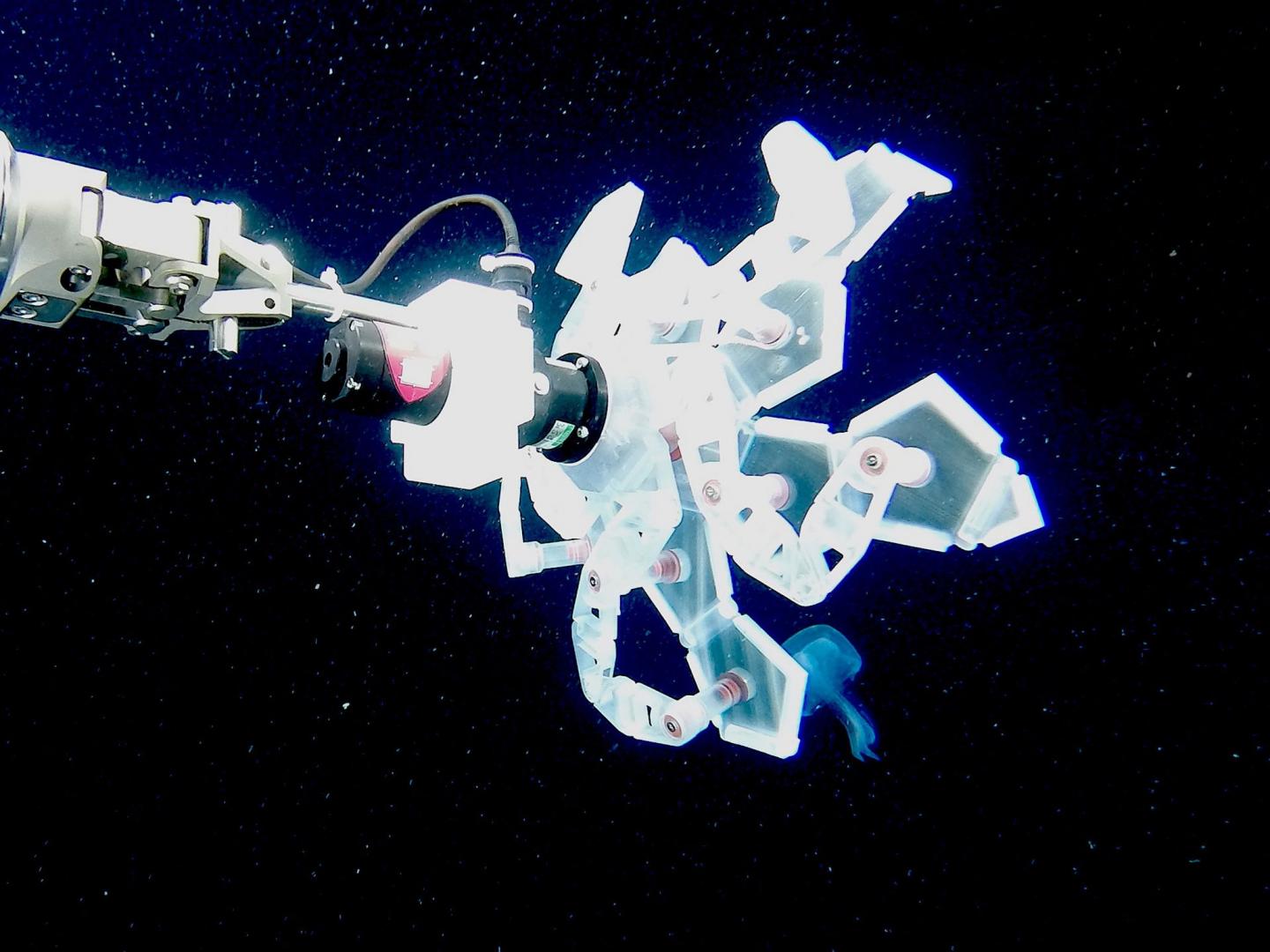Around 1 million unknown species are estimated to be living in our oceans, lurking in midwaters. Most of them are gelatinous, hence very fragile to handle and study. Until now, that meant that most of the devices available to study them did more harm than good.
Enter RAD (rotary actuated dodecahedron), a robotic mechanical arm-like device that looks like it was inspired by an origami structure. It is specially designed for midwater interaction.
The five identical 3D-printed ‘pedals’ it consists of are attached to rotating joints that form a scaffold. The entire structure folds up into an empty dodechadron when torque is applied at the meeting point.
The device was tested in the Mystic Aquarium in Mystic, Connecticut and it managed to capture and release a moon jellyfish without hurting it. Later on, it was sent to the coast of California where, being remotely controlled, managed to do the same capture and release to various species of squid, jellyfish and also octopus.
In the future, the scientists hope to equip RAD with cameras, touch sensors and perhaps DNA sequencing technologies. With more enhancements, we might even see RAD walk about the ocean floor, conducting its own research.
Follow TechTheLead on Google News to get the news first.

























